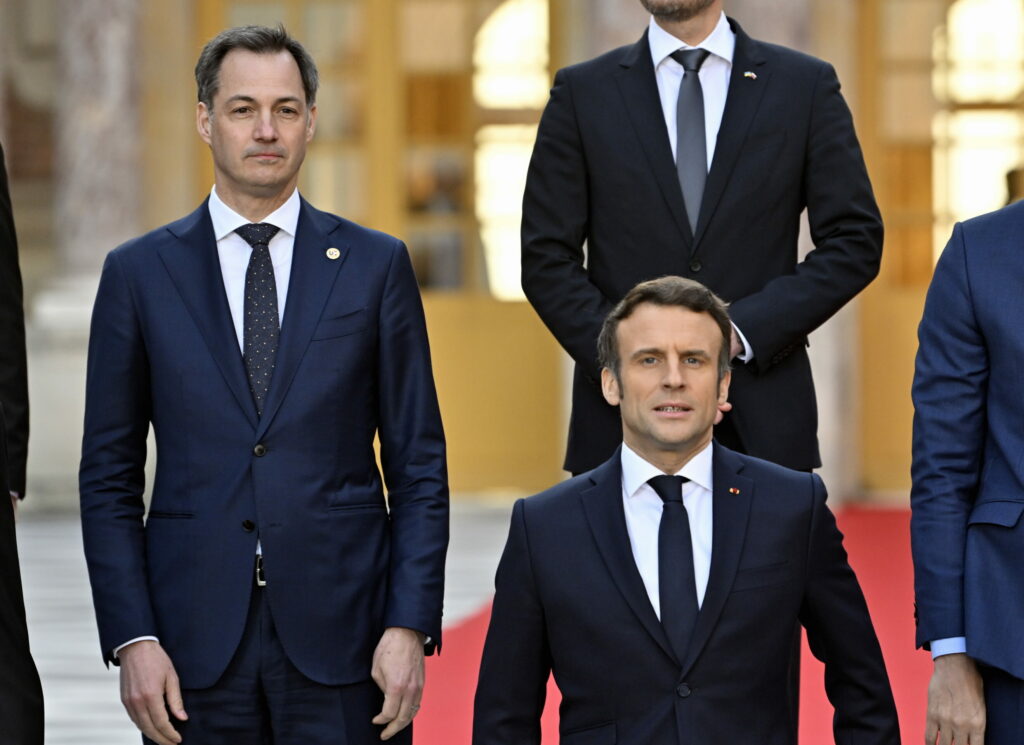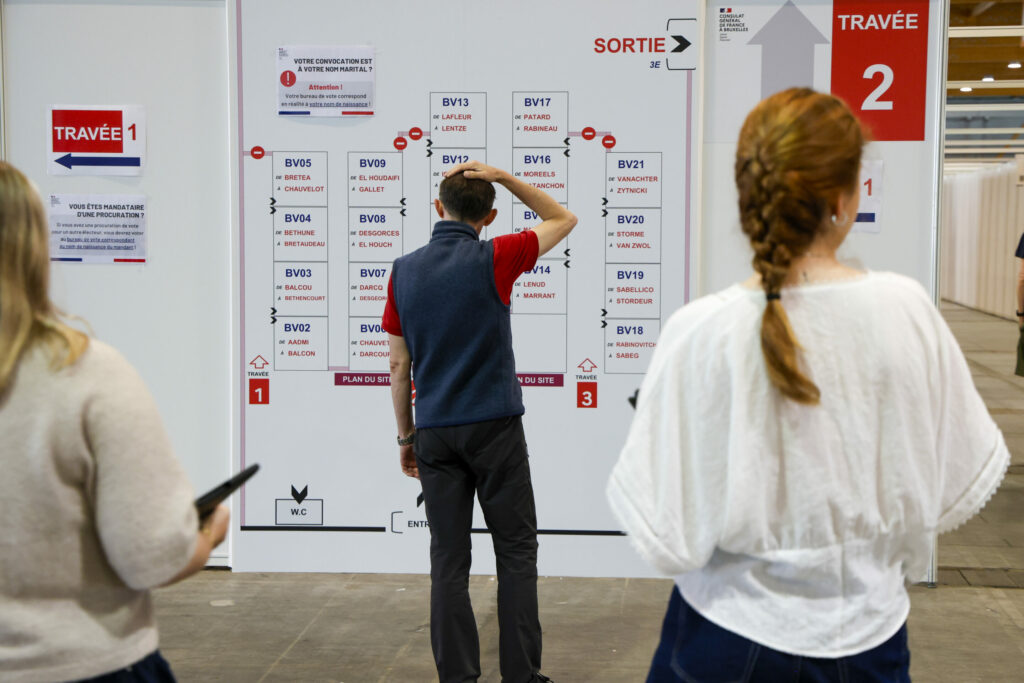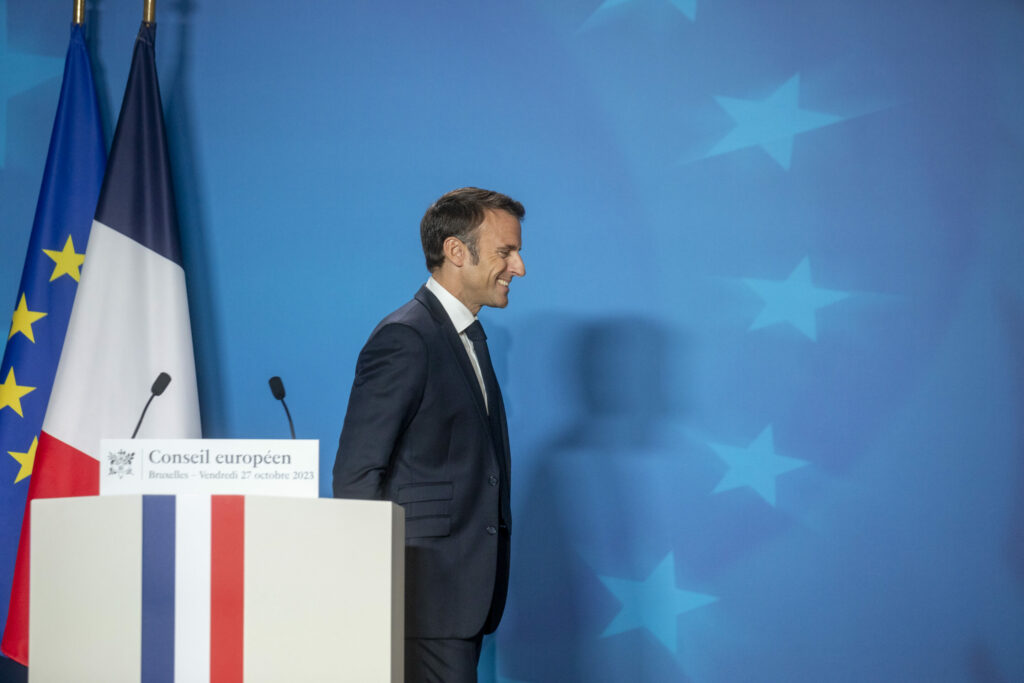With no political group in the French parliament securing an absolute majority in last weekend's elections, it is now unclear what formations will take shape in France's complicated political landscape. But no one is under any illusions about how difficult it will be to find a working partnership.
The divided election results have cast French politics into uncharted territory, with negotiations to form the next government likely to take some time. In search of a resolution, several analysts have started talking about a "Belgian scenario."
After the first round of elections at the end of June, the rightwing populist Rassemblement National (RN) won convincingly with 33% of the vote – comfortably ahead of the left-wing alliance Nouveau Front Populaire (28%) and President Emmanuel Macron's liberal Ensemble (20%).

Outgoing Prime Minister Alexander De Croo (left) and President of France Emmanuel Macron. Credit: Belga/Eric Lalmand
The second round brought a dramatic change, however, as the left bloc unexpectedly came out the big winner with 182 seats. Macron's party followed with 168 seats, and RN – which gained more seats than ever before – only finished third with 143 seats.
With none of the three major groups anywhere close to an absolute majority (at least 289 of the parliament's 577 seats), France could be heading for something decidedly un-French: a coalition.
A 'Republican front'
Just minutes after the results were announced, it became clear that a compromis à la belge is not in the French lexicon: Jean-Luc Mélenchon, leader of the radical left La France Insoumise (LFI) – which is a part of the Le Nouveau Front Populaire (NFP) alliance – was inflexible in his speech.
"The President must bow down and admit defeat. He has a duty to let us govern." Mélenchon swiftly added that no coalition would be possible and called on Macron to appoint a leftist Prime Minister. "We will implement our programme. Only our programme. Our entire programme."
Strikingly, the voter turnout in France was very high last weekend – approximately two in three eligible voters went to the polling stations. Experts say the high turnout was a popular effort by the French people to prevent the far-right from winning seats.
In France, people speak of a "Republican front" – the French equivalent of Belgium's cordon sanitaire – to block the far-right from gaining power. Jordan Bardella of the far-right Rassemblement National (RN) called it a "front of shame" that denied his party the victory.

People arrive to vote for the early parliamentary elections in France, on the Heysel site in Brussels, Sunday 30 June 2024. Credit: Belga/Nicolas Maeterlinck
For his part Macron favours a grand coalition around his centrist bloc. This would be bolstered by part of the left as well as part of the right. His Ensemble could continue to lead the government. Contrary to Mélenchon's demand, the French Consitution states that the President is free to choose the Prime Minister.
In terms of party programmes, there is not much overlap or connection between the three blocs. "It is hard to see the far-left LFI govern with Macron's people," said VRT's political analyst for France Rony Van Gastel. "On top of that, there are obvious personal dislikes and problems between the parties and their people, so this could all take a very long time."
Both nationally and internationally, this uncertainty could be problematic for France. Van Gastel believes the biggest issue will be approving the budget, which must be done before the end of October. France is already in the EU's penalty box, with a debt and budget deficit even bigger than in Belgium. But without a governing majority it will be exceptionally difficult to decide on cuts.
Related News
- Left wins most seats in French parliamentary elections, far-right comes third
- The Belgian Mayor of a French village who said no to the far-right
- French left bloc must present Prime Minister candidate 'within a week'
"In other words, this is not only going to be a big problem for France, but also for Europe," Van Gastel said. "If France is not going to make the required savings, is Belgium going to do it? Or Italy? What does that mean for the Euro? Lots of questions right now."
So far, it seems Macron is taking some time before taking his next step. He already has asked Gabriel Attal to remain in office as a caretaker Prime Minister. That way, the current government will at least still try to manage the Olympics this summer.

